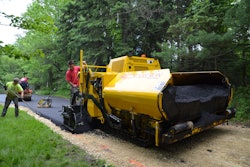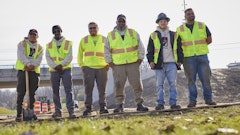A while back I received much more from a community swim meet than I thought I might. My initial thoughts were that I was going mostly to support and cheer on our grandson. Well, we did cheer and yell, but boy did I leave with more than just the fun of taking a few pictures.
Let me set the scene: A small, 25-meter pool, with four swimming lanes. More than 200 swimmers, boys and girls, ranging in age from five to 18, competing in individual races and relays. This San Antonio Community Swim Meet started promptly at 8:00 a.m. and 72 racing events later, some as many as seven “heats,” ended promptly at 11:00 a.m.
What was so impressive was how fast, safe, and smooth, the swim meet was conducted, from the individual races, to the handing out of ribbons, to even the concession stand. Everything was planned like it was the Olympics. Wow!
I visited with one of the individuals who had organized the meet and here are a few things she shared with me (after I shared with her that I work as a consultant with many construction companies). Boy did she give me some lessons on scheduling and organization!
“Mr. Humphrey, we want to run a swim meet that wastes very little time, keeps all the kids organized and moving in the right direction, safely, and provides a reasonable time frame that parents don’t feel like they have to give up their entire day to attend.”
In light of most contractor’s commitment to improving their productivity, you might find a few of her team’s strategies to be close to your own.
1. “The ‘wranglers’ keep the kids organized and in order of their races. We call it ‘phasing’ the kids based on the schedule. Gotta keep the kids four chairs deep for each successive race. As soon as one race is finished, the next row of swimmers rise and prepare to start…with all the other swimmers behind them moving up one chair in their respective lane.”
2. “We set our equipment (chairs, starting blocks etc.) first in order so that we can expedite the speed of each race; we hate wasting time.”
3. “We provide a schedule to all the coaches and volunteers and we plan out every second of racing, including what child is swimming in each heat of every race.”
4. “Our timers are all parents whom we train how to utilize the stop watches, on the requirements for touching the wall, and when it is okay for the child to begin their swim.”
5. “We have volunteer parents who consistently walk around picking up trash, goggles etc. A clean area will result in less accidents and make our swim meet look more professional. This will help parents want to come back and have their kids compete in swimming.”
6. “In the end, we want to ensure that the meet is moving forward!”
Wow, her lessons kept coming at me. She emphasized how important it was to have a pre-meet (think pre-start or pre-construction) discussion with all volunteers to ensure that everyone knew what to expect and could ask questions.
OK, you’re probably beginning to see where I’m heading with this story. Think about it: if you can train five-year-old kids, and their parents, to make a community swim meet run without any hitches, I think we can rethink how we prepare for every project we take on…no matter how big or small the job. Hopefully, leveraging the right sort of training on job scheduling and constructability can continue to help your company. Why? Because this is how you keep the “meet moving forward.”
Sure, I realize there a lot of other issues you must contend with when completing any project, but can we agree that some of the spirit of scheduling a kid’s community swim meet might share some of the same principles for our job planning?
1. Your Foremen are the “wranglers,” committed to keeping all the workers, equipment, and materials organized and in working order.
2. The entire Quality, or Lean “movement” instructs us to organize our trucks, yards, and even our jobsites to sequence materials, equipment and tools so that we can access them efficiently.
3. Isn’t the accuracy of the schedule critical to all who should have a copy of it? With more eyes aware of the schedule, seems like you might be able to prevent costly mistakes.
4. Keeping your safety, yard maintenance, HR, financial, IT etc. professionals updated as needed keeps everyone working together to arrive at that perfect result.
5. Keeping everyone in the loop allows your company to have backup ready for the asking…maybe even faster.
6. Everyone can help out with jobsite cleaning, but you need to make sure that everyone is doing their best to keep the jobsites, your yard, and your office clean and organized consistently.
7. In the end, don’t you just want your jobs to go smoothly and more profitably than was estimated?
You really can learn a lot from other industries and even some kids’ sporting events. Next time you go to your kid’s soccer game, baseball game, or basketball game, take some notes on how the event’s organized. You might be surprised where you can pick up some valuable tips.
Here’s to learning from our kids' (or grandkids') sporting events!











![Lee Boy Facility 2025 17 Use[16]](https://img.forconstructionpros.com/mindful/acbm/workspaces/default/uploads/2025/09/leeboy-facility-2025-17-use16.AbONDzEzbV.jpg?ar=16%3A9&auto=format%2Ccompress&fit=crop&h=135&q=70&w=240)








